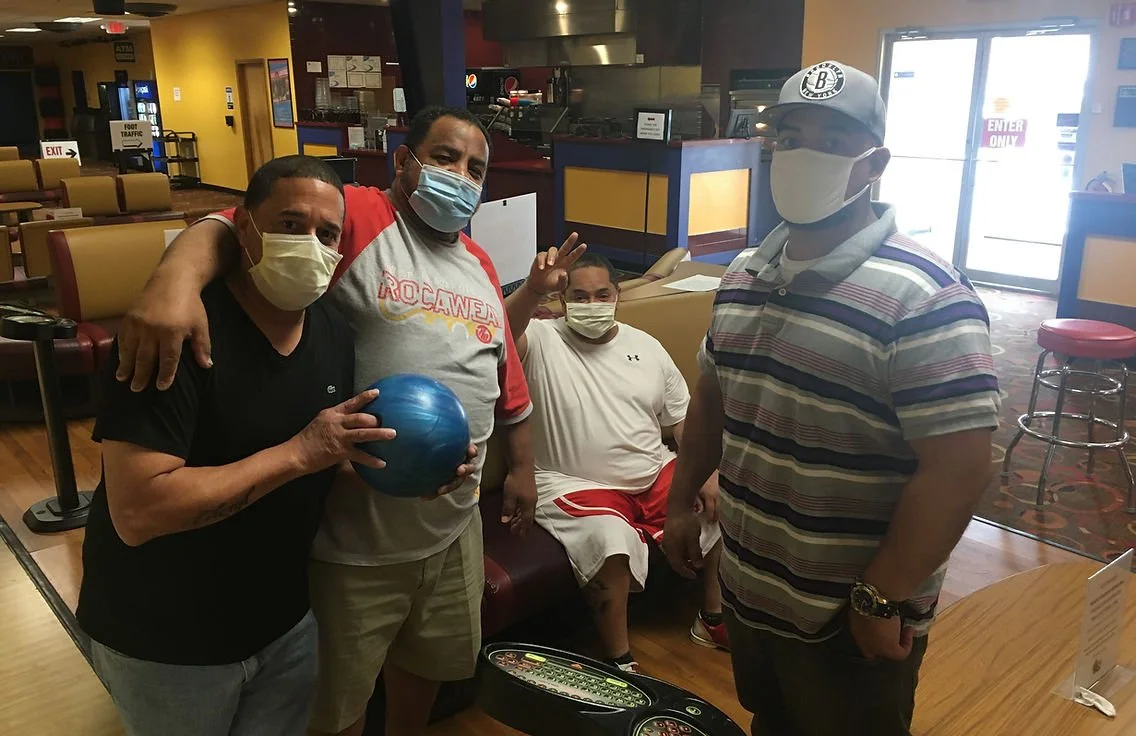casa reyes &
casa mattie
In response to this crisis, the mission of the Latin American Health Alliance (LAHA) is to eliminate the significant health disparities that exist for the Latino Community in the greater Worcester area. LAHA advocates on behalf of the Latino Community, responding to important social issues that affect the Worcester area Latino population. Since 2009, LAHA has effectively implemented programs that address service gaps and access inequalities while continually evaluating the efficacy of programs based on participant feedback and assessment of best practices in the industry.
LAHA’s programs provide residential SUD treatment for Latino men suffering from substance use disorder at the Hector Reyes House (HRH), located less than half a mile from the City's main transportation center. The Hector Reyes House is an innovative model of residential substance use treatment, encompassing affordable housing and job training. The six-month program provides for 25 Latino men at a time, offering in-house medical treatment, along with intensive cognitive behavioral therapy.
Program Details
-
Since the inception of Hector Reyes House (HRH), staff have observed significant barriers that make it difficult for patients to find affordable transitional housing, permanent housing, or employment opportunities. A significant gap was identified in safe, sober, affordable placement for the men leaving the residential treatment center. LAHA opened its first transitional recovery home, Casa Reyes in 2011, then added Casa Mattie in 2019. Plans are in the works to purchase and renovate a third on the same street as the existing LAHA facilities.
The threat of relapse is one of the biggest risks for those leaving residential treatment centers. Living in one of the LAHA transitional recovery homes allows clients to keep in contact with the treatment center services, live in a sober, supportive environment, and continue to participate in the programs and groups.
Recovery Home program participants agree to weekly meetings with their assigned Supportive Housing Advocate who provides case management focusing on stabilization in recovery/transition and supporting independence. Too often, without the right process, people slip back into their old lifestyles and habits. A LAHA Advocate is someone who has been through the process, has the connections, and can lead the way for others.
-
With the help of a LAHA Advocate, participants can access other LAHA Services and programs such as:
· SUD education, non-clinical assessment, & referral to SUD treatment/mental health services
· Self-help meetings, educational & support groups
· Job-training
· Basic needs (food, hygiene, clothing)
· Stabilization resources such as Supplemental Nutrition Assistance Program (SNAP) and Supplemental Security Income (SSI)
· Legal services (advocacy in healthcare, criminal justice/legal, family matters, etc.)
· Transportation to off-site services
· Peer mentorship & advocacy
· Fitness and Wellness Programming
-
The two transition houses, Casa Reyes and Casa Mattie, are both adjacent to the main residential treatment center, Hector Reyes House. These units are typically 3-bedroom apartments with some single rooms for those who require their own space for medical, mental health, and behavioral health purposes. Residents share the kitchen, living area, bathrooms, and other communal spaces such as the yards and gardens. Housing that is a part of the LAHA Supportive Housing Program (LSHP) is ADA-compliant. LAHA’s wrap-around services eliminate additional barriers to resources by providing access to partner services on-site, as well as transportation to any off-site.
All LAHA Transition houses are supported by a House Manager and a Supportive Housing Advocate to ensure that individual and program goals are being met. Residents meet with support teams weekly and work towards goals that will help sustain their recovery. Key goals include housing stability, employment, life skills development, obtaining social benefits, and maintaining existing obligations such as complying with court orders and Department of Children and Family (DCF) service plans.


